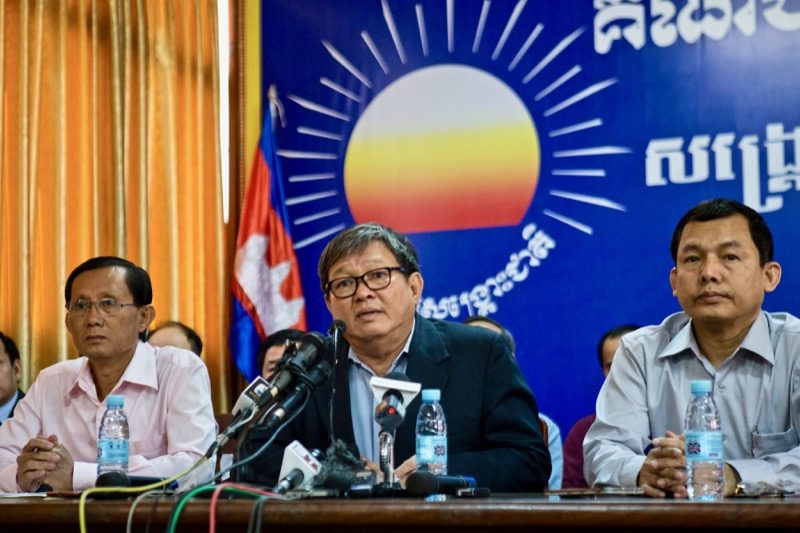Ruling CPP lawmakers followed through with plans to strip the opposition CNRP of its official minority status at the National Assembly on Tuesday as Prime Minister Hun Sen put the blame squarely on the opposition for abusing parliament’s internal rules.
The CNRP, which boycotted the session in protest of the vote, dismissed the move as “unreasonable” and counterproductive.

With its thin majority in the Assembly, the CPP voted unanimously to change the internal rules to do away with official majority and minority party designations that were, in theory, supposed to strengthen the CNRP’s hand by creating a formal mechanism for the two parties to discuss issues of national importance. The CPP had conceded to granting the CNRP official minority status in 2014 as part of a deal to end the opposition’s boycott of parliament over the disputed results of the previous year’s national elections.
Taking the floor before Tuesday’s vote, Mr. Hun Sen repeated his claim that the CPP had no choice but to change the rules because the CNRP was abusing them to press for the release of several lawmakers and rights workers considered to be political prisoners by the opposition and observers. Though the CPP has often freed prisoners to settle past political disputes with the opposition, it now claims not to have the power to do so again.
Mr. Hun Sen said the CPP had “to end the culture of the minority holding the majority a political hostage by endlessly demanding the release of prisoners through political talks.”
He claimed, too, that CNRP Vice President Kem Sokha had gone back on his word in December to replace CNRP President Sam Rainsy, who was exiled from Cambodia last year while living abroad to avoid a prison sentence for defamation, as the official minority leader. Even after Mr. Hun Sen named Mr. Sokha his new key contact with the opposition that month, days after arranging his royal pardon for a conviction in a “prostitution” case involving his alleged mistress, Mr. Rainsy insisted on remaining minority leader from overseas, though he eventually said that titles were not important.
The prime minister said he also decided to have the internal rules amended to save money on the overhead costs of having official majority and minority leaders and, ironically, because the CNRP would not stop accusing the CPP of being unwilling to hold talks.
At a press conference held on Tuesday morning at the CNRP’s headquarters in Phnom Penh, opposition lawmaker Son Chhay dismissed the prime minister’s explanation.
“These five points are unreasonable because this article is not written for individuals, but rather for the benefit of the nation, the National Assembly and the future,” he said. “The CNRP believes in dialogue…. Dialogue is the best way to manage our country. All parties need to dialogue to solve the issues together.”
“We have different plans, we have different work habits, but for all national and social issues we need a mechanism to dialogue together. If we cannot dialogue together, we cannot ensure national unity and lasting peace for our society,” Mr. Chhay added.
Kem Monovithya, the opposition’s deputy director of public affairs, and Mr. Sokha’s daughter, said the amendment was a sign of the long-ruling CPP’s panic ahead of upcoming commune and national elections in the face of a united opposition.
“The arbitrary move says nothing other than that the CPP is desperate and has nothing legitimate to offer in the electoral race,” she said.
Mr. Rainsy has accused the CPP of trying, and failing, to wield the Assembly’s minority leader role to split the CNRP, which is the product of a fraught merger between him and Mr. Sokha in 2012.
The campaign to split Mr. Rainsy and Mr. Sokha does not appear to be finished. Mr. Hun Sen also proposed amending the Law on Political Parties on Tuesday so that convicted criminals could not lead political parties, a rule that would force Mr. Rainsy out of his position, presumably leaving it open for Mr. Sokha.
(Additional reporting by Ben Sokhean and Michael Dickison)




